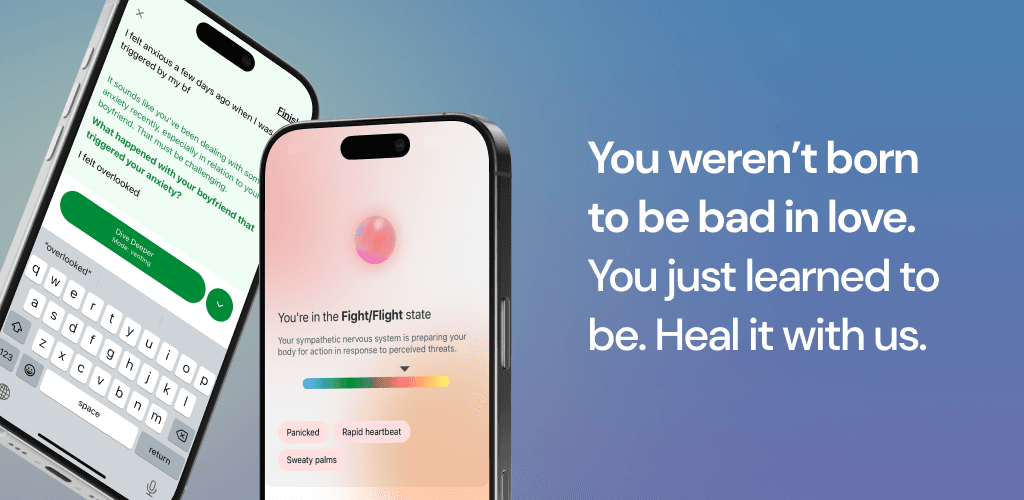How to Lose an Avoidant in 10 Texts - What Not to Text Avoidants
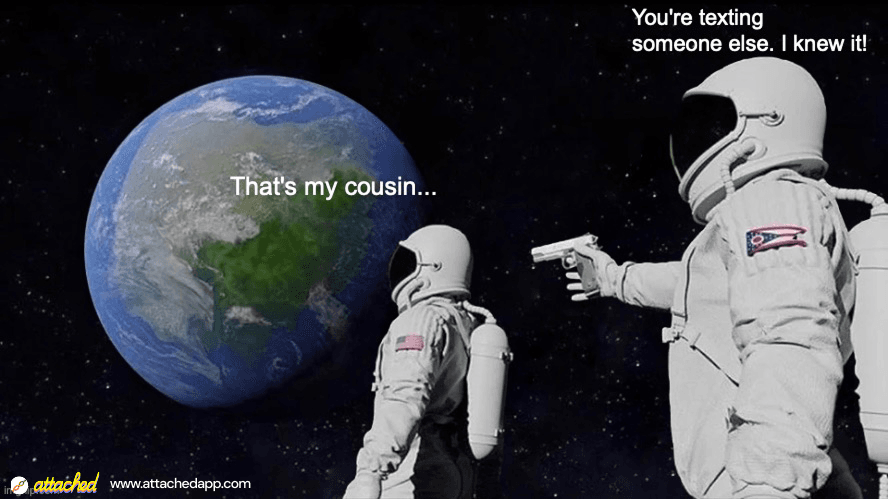
If you're reading this, chances are your heart is heavy. You've loved someone who seemed just out of reach—someone who pulled away when you needed closeness the most. Loving an avoidant partner can feel like chasing a mirage: the closer you get, the further they retreat.
For those with anxious attachment styles, this dynamic is especially painful. You crave connection, reassurance, and intimacy. But with an avoidant partner, your needs might have been met with distance, silence, or even dismissal.
Understanding the behaviors that trigger avoidant partners can offer clarity—not to manipulate them, but to help you recognize patterns that may be harming your well-being. Sometimes, knowing what pushes them away can illuminate what you truly need in a relationship.
Text 1: "Can we spend more time together? I feel better when we're close."
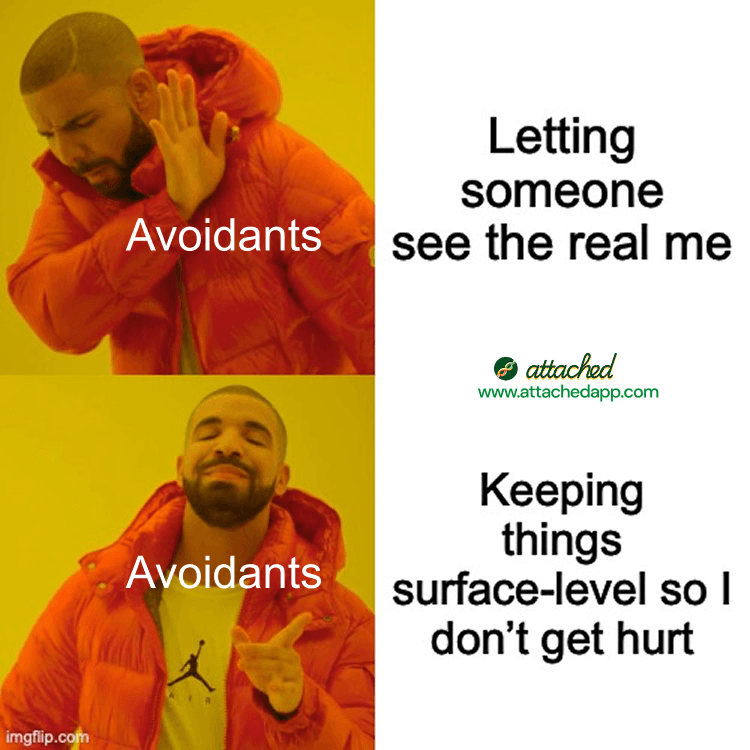
You weren't trying to scare them. You were just showing love in the way you know how: being present, being available, being emotionally open. But for someone with an avoidant attachment style, your warmth can feel like a spotlight they don't know how to stand under.
Avoidants see emotional closeness with danger. It makes them feel exposed, like there are expectations they'll fail to meet. And when you're texting them throughout the day, asking deep questions, or trying to make plans every weekend, they might start feeling cornered.
But here's the thing: anxious and avoidance essentially speak different languages!
- Anxious: "I want to get closer to you"
- Avoidant: "That seems scary"
I know. Feels heartbreaking. You're showing up with your whole heart, and they're pulling away like they're trying to escape. It can make you question your worth, when really, the issue lies in the difference in attachment styles - aka, your different ways of interpreting each others' actions. Not in your value.
Avoidants often need a slow pace. They're wired to protect their space and emotions. If they sense that your presence requires more than they can give, they may choose to create distance rather than communicate boundaries.
So you find yourself caught in a pattern: the more you give, the less they want. And it hurts deeply because you're giving love the only way you know how.
The solution isn't to be less loving. It's to protect that love by giving it to someone who can actually receive it.
Text 2: Text them "I want you to open up"
You open up, hoping they'll meet you there. You tell them how much you care, share your fears, your dreams, your past, and instead of leaning in, they give you silence. Or worse, they give you logic.
This feels like emotional abandonment to an anxious partner. Silence doesn't mean "neutral" to you, it feels like rejection. So you try again. You get more vulnerable.
But avoidant people often shut down when emotions get intense. To them, these deep emotional moments can feel like pressure or even emotional manipulation, even when your heart is in the right place.
- Anxious: "I feel I'm being ignored"
- Avoidant: "I just want space"
You might start to believe if you just explain more clearly, if you're more patient, if you show them how safe you are, they'll finally open up. But emotional intimacy isn't something you can force, no matter how much you love someone.
And for an avoidant person, vulnerability can feel unsafe, unfamiliar, even threatening. When you expect openness from them, it can trigger their need to protect themselves by withdrawing further.
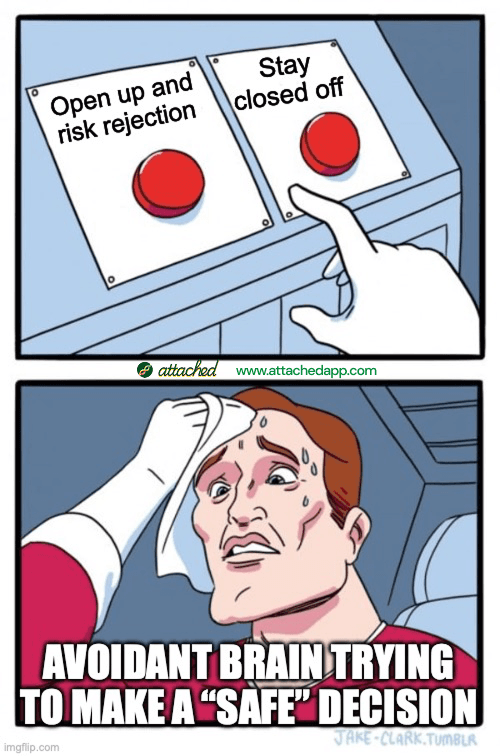
Ask yourself: Am I trying to unlock someone who has no intention of handing me the key?
You deserve to be met, not managed.
Texts 3: Text them "Do you still love me?" 10 times a day
You send a message. No reply. Your chest tightens. Thoughts race. "Are they upset? Did I do something wrong?"
So you follow up. Maybe twice.
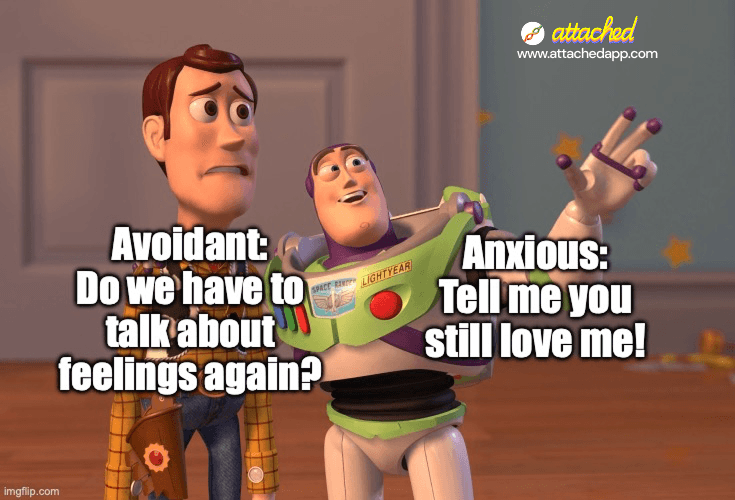 Avoidant partners often see this as neediness. But for you, it's a bid for connection. You're not trying to smother them. You're trying to matter.
Avoidant partners often see this as neediness. But for you, it's a bid for connection. You're not trying to smother them. You're trying to matter.
When reassurance is missing, your anxiety fills the gap with worst-case stories.
You're not broken, you're wired for closeness. But you're reaching for someone who's wired for space. And that hurts more than silence ever could.
Text 4: Texting them "I don't understand why you need space"
Avoidants often need emotional space to feel safe. Not because they don't care, but because too much closeness can feel like a loss of control. If you ignore their need for space—even with the best intentions—they may pull away even more.
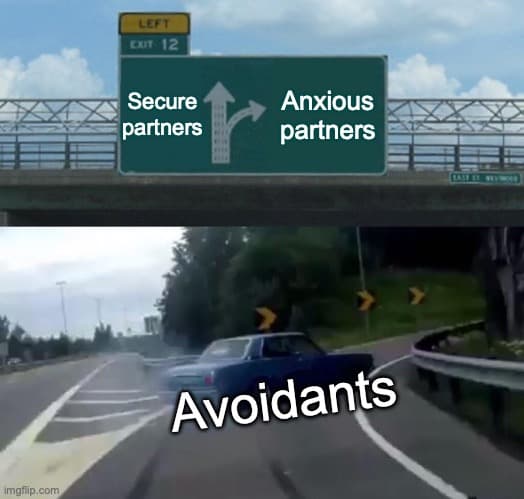
It's heartbreaking when closeness pushes someone away. You're just trying to connect. But they may experience it as suffocating, even if you're coming from a place of love.
You're not wrong for wanting connection. But sometimes, giving space is the most loving thing you can do, for you, too.
Text 5: "Why do you always need space?"
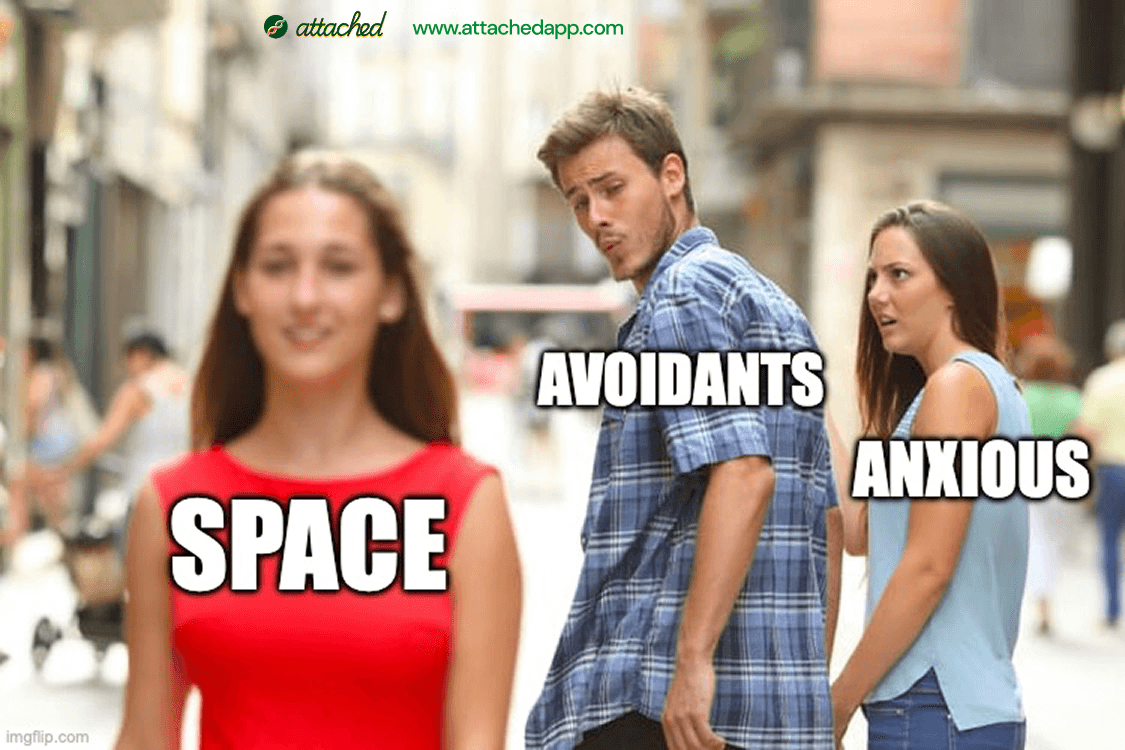
Avoidant partners care a lot about their independence. They often feel safest when they have space, freedom, and control over their own emotions. This isn't because they don't want love, it's because closeness can feel risky to them.
So when you question why they need time alone, they may feel judged or attacked. To you, it might feel like an honest question. But to them, it can sound like, "You're doing love wrong."
And that makes them pull away even more.
You might feel like they're shutting you out, or that they don't care. And it's natural to speak up when you feel hurt. But when that comes out as criticism, they may hear it as a threat to their need for emotional safety.
It doesn't mean you have to ignore your needs. But it does mean noticing when your pain turns into pressure.
Instead of saying, "Why do you always need space?" try asking, "What helps you feel close and still comfortable?"
You deserve connection. But so do they, and sometimes, it starts with respect for how you both feel safe.
Texting style 6. Being unpredictable
Avoidant partners feel safer when things are calm and steady. They don't like emotional chaos or surprises in relationships. So when your behavior or communication changes a lot, like texting a lot one day, then going quiet the next, it can make them feel unsure or even unsafe.
This might sound confusing, especially if you're anxious and they're the one pulling away. But sometimes, when you're hurt or scared, you might act differently without meaning to. Maybe you ignore them to protect yourself. Or maybe you say you're "fine" when you're not, hoping they'll notice.
To an avoidant, this can feel unpredictable. They don't know what to expect from you. And because they already fear being overwhelmed or trapped, this unpredictability makes them want to pull away more.
Even if you're doing your best, inconsistency can accidentally confirm their fear: "Relationships aren't safe."
You're not bad or wrong. You're reacting to pain. But if you find yourself hot-and-cold, or saying one thing and doing another, it's worth asking: Am I protecting myself… or pushing them further away?
Text 7: "I want to know what you're thinking. Can you say something"
When you're anxious, conflict feels like danger. Silence after an argument can feel unbearable. You might want to fix things right now—to talk, to understand, to reconnect as fast as possible. That's because your nervous system is searching for safety.
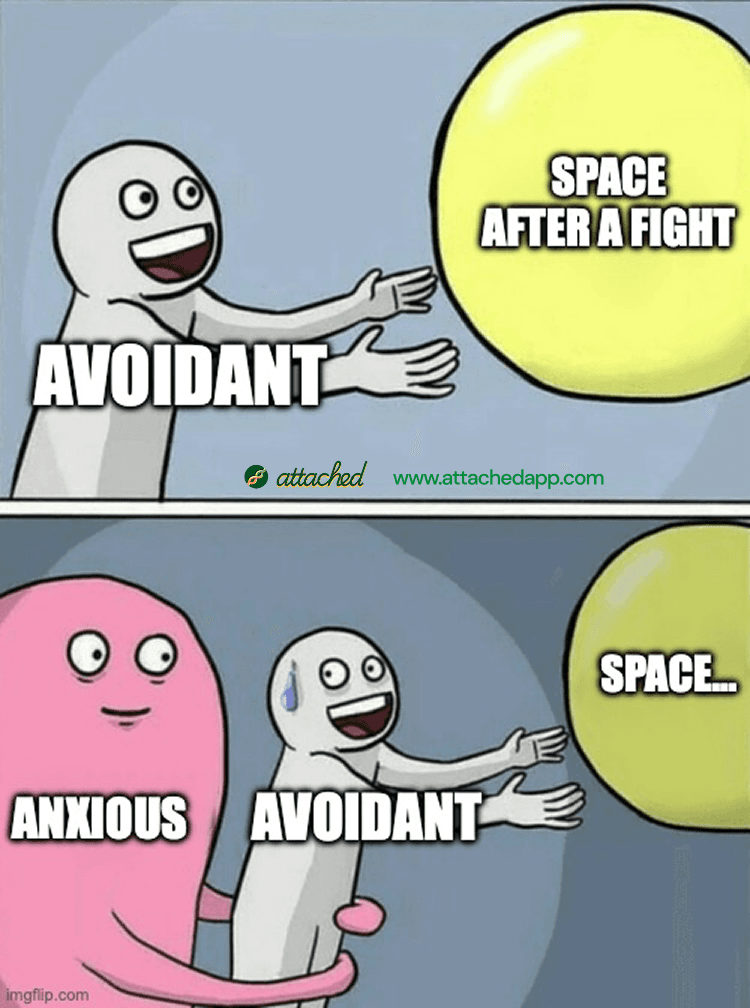
But for someone with an avoidant attachment style, conflict is overwhelming in a different way. Their system says: Shut down, get space, protect yourself. So while you're trying to fix things immediately, they're trying to escape the intensity.
This can create more distance, not more closeness.
Text 8: "Who are you texting?"
When you're anxious in love, even small things can feel like big threats. A late reply, a mention of a friend, or a night out without you might make your mind spiral: "What if they're losing interest? What if someone else is getting their attention?"

That fear doesn't come from nowhere, it comes from wanting to feel secure. But to an avoidant partner, jealousy can feel controlling or suffocating. Even if they're not doing anything wrong, your suspicion might feel like a sign that they'll never be trusted.
And when they feel controlled, their first instinct is usually to pull away.
Text 9: "Why are you always so cold?"
When someone you love seems distant or unemotional, it's easy to feel frustrated. You may express your emotions loudly, clearly, and often. So when your avoidant partner is quiet, calm, or avoids conflict, it can seem like they don't care. And sometimes, in your pain, you might say things that make them feel wrong for feeling the way they do.
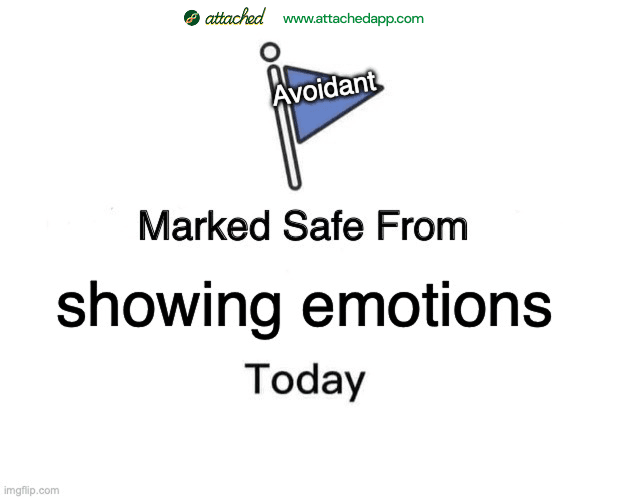
Avoidants often struggle to name or express emotions. When you question or dismiss their feelings, even unintentionally, it can make them feel unsafe—and they shut down even more.
Text 10: "Maybe we shouldn't be together"
When you're hurting and don't feel seen, sometimes you say things you don't fully mean, just to feel heard. If you have an anxious attachment style, you might feel desperate to get a reaction, to feel that your partner cares. So in the heat of pain, you might say: "Maybe we should break up," or "If you don't change, I'm done."
But to an avoidant partner, ultimatums feel like pressure, control, or emotional threats. Even if your heart is breaking, and you're hoping they'll fight for you, they may take your words at face value and walk away.
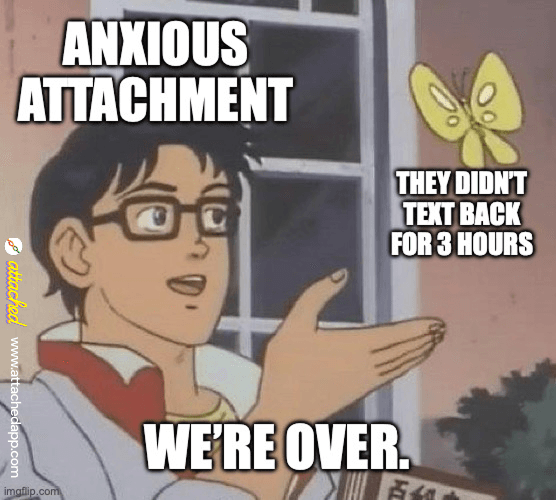
Why? Because avoidants often deal with conflict by retreating. When love feels unsafe or demanding, they protect themselves by disconnecting.
What if, you hate this dynamic and you want to stop?
If you're tired of chasing people who pull away, it's not because you're broken. It's because your brain got used to thinking love means anxiety. But the good news is, you can rewire your patterns and start feeling attracted to people who actually make you feel safe, seen, and calm.
The Attached app helps make this process easier with:
- Daily Quests for habit-building
- Help Mode for tough emotional moments
- AI Journal to find hidden emotional patterns
- Weekly Coaching from Eden, your relationship guide
Download Attached for free and start working toward not having to chase your avoidant partner.
